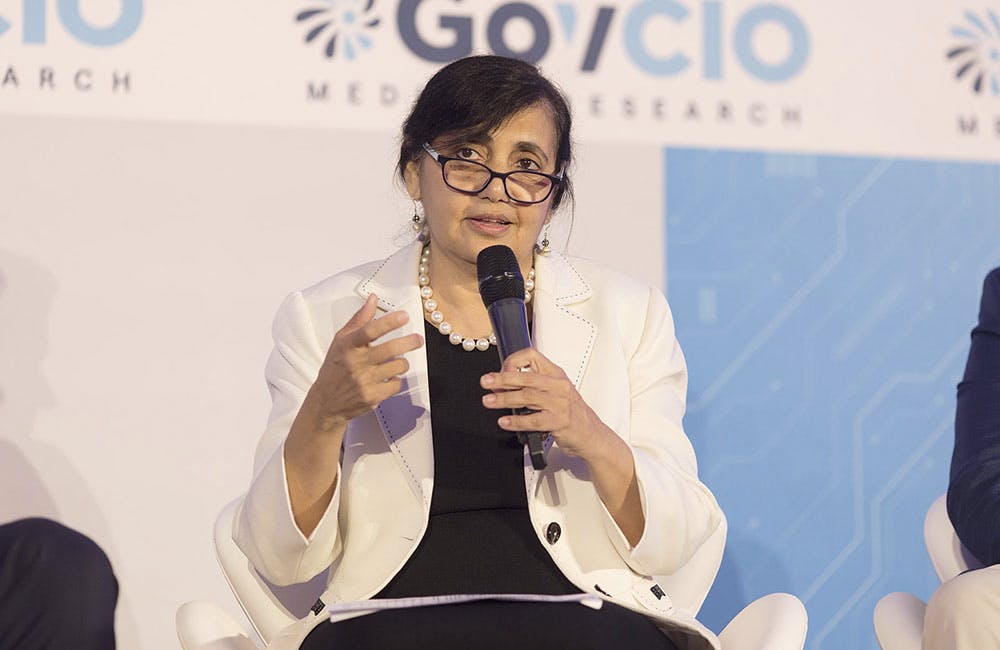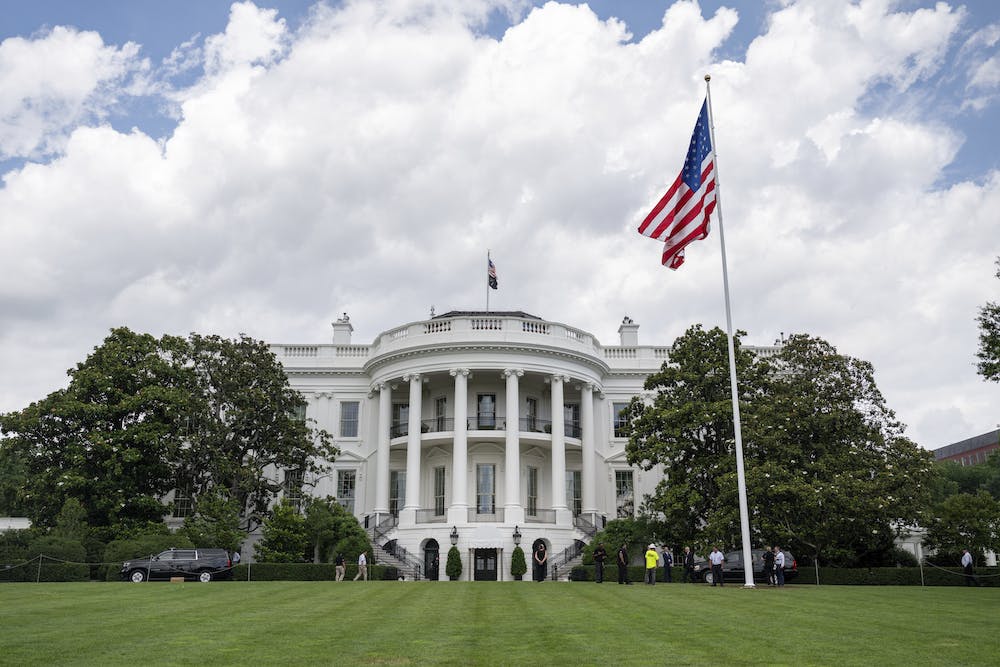White House’s ‘AI Bill of Rights’ Codifies Ethical Use, Privacy
The collaborative document aims to keep AI ethical and equitable while standardizing best practices at the federal level.

Artificial intelligence is showing much promise for driving efficiencies across the federal government, but many leaders want to alleviate concerns regarding ethical use of AI and potential bias inherent in some algorithms and data sets fueling the technology. The White House’s newly released AI Bill of Rights aims to codify some of these solutions across all of government — an effort underpinning presidential priorities around holding government accountable and improving trust.
“Automated technologies are driving remarkable innovations and shaping important decisions that impact people’s rights, opportunities, and access. The Blueprint for an AI Bill of Rights is for everyone who interacts daily with these powerful technologies — and every person whose life has been altered by unaccountable algorithms,” White House Office of Science and Technology Policy Deputy Director Alondra Nelson told GovCIO Media & Research.
The AI Bill of Rights was created in consultation with major federal agencies, including considerable input and expertise drawn from the Department of Veterans Affairs’ National Artificial Intelligence Institute (NAII), as well as with feedback from the American public. This collaboration contributed to the core protections of the strategy, including safe and effective systems, data privacy, notice and explanation, and alternative options.
“OSTP has identified five principles that should guide the design, use and deployment of automated systems to protect the rights of the American public in the age of artificial intelligence,” NAII Director Dr. Gil Alterovitz told GovCIO Media & Research right after an announcement during VA’s annual BRAIN Summit. “Developed through extensive consultation with the American public, these principles are a blueprint for building and using technologies in ways that are rooted in democratic values and protect civil rights.”
The AI Bill of Rights builds off the foundation created by the December 2020 Trustworthy AI Executive Order that outlined nine distinct principles to ensure agencies “design, develop, acquire and use AI in a manner that fosters public trust and confidence while protecting privacy.”
As Alterovitz explained, the AI Bill of Rights condenses these into a framework that seeks to reconcile technical advancement in ways that advance the core values of American civil society.
Alterovitz noted that “NAII [has] established four strategic goals for fiscal years 2022 through 2026” which he summarized as:
“Providing cutting-edge AI research, projects and pilots to enhance outcomes and experiences for Veterans and VA staff. Providing sought-after thought leadership and frameworks for the implementation of trustworthy AI. Building strategic partnerships across the private sector, the federal government and the research community to maximize AI’s potential to benefit veterans, and continuing to develop the NAII organization and workforce to meet the growing AI needs of those serving veterans.”
As the largest integrated health care system in the country, VA’s artificial intelligence research and in-house capacities lends to its pivotal role in advising on the AI Bill of Rights and may set precedence for future applications of the technology across the government.
“The practices laid out in the Blueprint for an AI Bill of Rights aren’t just aspirational; they are achievable and urgently necessary to build technologies and a society that works for all of us,” Nelson added.
This is a carousel with manually rotating slides. Use Next and Previous buttons to navigate or jump to a slide with the slide dots
-

Pentagon's $200M AI Contracts Signal Broader Effort to Transform Talent
The Army is leveraging Silicon Valley, reservist programs and new hiring strategies to integrate critical digital skills in its ranks.
5m read -

AI Foundations Driving Government Efficiency
Federal agencies are modernizing systems, managing risk and building trust to scale responsible AI and drive government efficiency.
43m watch -

Agencies Tackle Infrastructure Challenges to Drive AI Adoption
Federal agencies are rethinking data strategies and IT modernization to drive mission impact and operational efficiency as new presidential directives guide next steps.
5m read Partner Content -

Generative AI Demands Federal Workforce Readiness, Officials Say
NASA and DOI outline new generative AI use cases and stress that successful AI adoption depends on strong change management.
6m read -

The Next AI Wave Requires Stronger Cyber Defenses, Data Management
IT officials warn of new vulnerabilities posed by AI as agencies continue to leverage the tech to boost operational efficiency.
5m read -

Federal CIOs Push for ROI-Focused Modernization to Advance Mission Goals
CIOs focus on return on investment, data governance and application modernization to drive mission outcomes as agencies adopt new tech tools.
4m read -

Fed Efficiency Drive Includes Code-Sharing Law, Metahumans
By reusing existing code instead of rewriting it, agencies could dramatically cut costs under the soon-to-be-enacted SHARE IT Act.
5m read -

Navy Memo Maps Tech Priorities for the Future Fight
Acting CTO’s memo outlines critical investment areas, from AI and quantum to cyber and space, as part of an accelerated modernization push.
5m read -

DOD Can No Longer Assume Superiority in Digital Warfare, Officials Warn
The DOD must make concerted efforts to address cyber vulnerabilities to maintain the tactical edge, military leaders said at HammerCon 2025.
4m read -

New NSF Program Cultivates the Future of NextG Networks
The agency’s new VINES program looks to tackle key challenges like energy efficiency and future-proofing wireless tech.
21m watch -

DHA CDAO Spearheads Master Data Catalog to Boost Transparency
Jesus Caban plans to boost DHA's data maturity through a new master data catalog, governance frameworks and inventory of tech tools.
5m read -

Trump Orders Spark Government-Wide Acquisition Overhaul
As Trump pushes for a faster, simpler procurement system, agencies are leveraging AI and adapting strategies to meet new requirements.
5m read
















